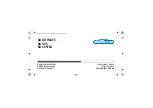
RP0176-2003
NACE International
19
9.2.3 Conditions may exist in which operating experi-
ence indicates that surveys and inspections should be
made more frequently than recommended herein, such
as following severe storms.
9.3 A survey should be conducted after each CP system is
energized to determine whether it satisfies applicable cri-
teria and operates effectively. This survey must include
structure potential measurements in sufficient detail to dem-
onstrate conclusively that protection has been attained (see
Section 4).
9.4 A periodic survey should be made to ensure the contin-
uity of CP. The electrical measurements used in this survey
should include structure potential measurements at loca-
tions selected for the earlier survey(s). The period between
surveys should be determined as follows:
9.4.1 If previous survey data are not available, or no
analysis of the previous data has been carried out, the
survey should be carried out annually.
9.4.2 For sacrificial anode CP systems there are two
critical periods of operation—initial operation of the sys-
tem, demonstrating that the entire structure is polarized
(see Paragraph 9.3); and final years of design life of
the system, when the performance of the anodes can
become more difficult to predict. Between these per-
iods structure potentials and anode wastage rates fol-
low well-defined trends. Taking this into account, a
risk-based approach to CP inspection can be adopted.
Inspection frequency should be based on a five-year in-
terval unless more frequent inspection is required be-
cause of any of the following conditions being present:
•
Visual inspection reveals additional steelwork on
the structure not included in the current structure
CP drawings. This could include debris in electrical
contact with the structure, new conductors, new
caissons, new risers, etc. A CP survey should be
carried out immediately, structure potentials mea-
sured, structure CP drawings updated, the impact
on the structure anode design life assessed, and
the need for any remedial work assessed (e.g., re-
moval of debris, installation of additional anodes,
etc.).
•
Anodes are within two years of the end of their ori-
ginal design life. The CP survey should be carried
out annually. If the required structure life is in ex-
cess of the remaining anode design life, the actual
remaining life of the anode system should be
reassessed (based on a survey of potentials and
remaining anode mass) and the need for a retrofit
assessed. If the original CP design was
conservative, the actual remaining anode life may
be well in excess of two years. This actual
remaining anode life can be used in scheduling
future CP surveys (on the same five-year/two-year
basis).
•
Local regulatory requirements that require more
frequent inspections (e.g., U.S. Minerals Manage-
ment Service
(6)
—annual).
9.4.3 For impressed current cathodic protection
(ICCP) systems the initial operation of the system is
critical, demonstrating that the entire structure is polar-
ized (see Paragraph 9.3). After this, the performance
of the ICCP system depends on proper operation and
maintenance (see Paragraph 9.5). Taking this into ac-
count, a risk-based approach to CP inspection can be
adopted. Inspection frequency should be based on a
five-year interval unless more frequent inspection is re-
quired because of any of the following conditions being
present:
•
Visual inspection reveals additional steelwork on
the structure not included in the current structure
CP drawings. This could include debris in elec-
trical contact with the structure, new conductors,
new caissons, new risers, etc. A CP survey
should be carried out immediately, structure poten-
tials measured, structure CP drawings updated,
the impact on the ICCP system assessed, and the
need for any remedial work assessed (e.g., re-
moval of debris, installation of additional anodes,
modified anode currents, etc.).
•
Operation and maintenance of the ICCP shows
poor functionality, which indicates damaged
anodes or cables
•
Local regulatory requirements that require more
frequent inspections (e.g., U.S. Mineral Manage-
ment Service—annual).
9.5 Inspection and tests of ICCP facilities should be made
to ensure their proper operation and maintenance.
9.5.1 All sources of impressed current should be
checked at intervals not to exceed two months. Evi-
dence of proper functioning may be current output, nor-
mal power consumption, or satisfactory structure-to-
seawater potentials on the protected structure.
9.5.2 All ICCP facilities should be inspected annually
as part of a preventive maintenance program to mini-
mize in-service failure. Inspection may include a check
for electrical shorts, satisfactory ground and header
cable connections, meter accuracy, rectifier efficiency,
and overall circuit resistance.
__________________________________________
(6)
Bureau of Mines, 2402 E Street NW, Washington, DC 20241.
Summary of Contents for CP 1
Page 1: ...CP 1 Cathodic Protection Tester Course Manual February 2005 NACE International 2000 ...
Page 265: ......
Page 266: ......
Page 267: ......
Page 268: ......
Page 301: ...RP0169 2002 32 NACE International ISBN 1 57590 035 1 ...
Page 535: ...TM0101 2001 24 NACE International ISBN 1 57590 137 4 ...
















































